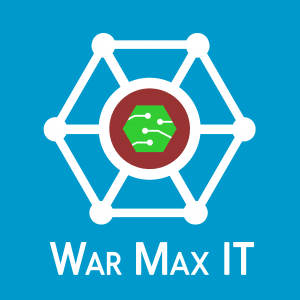Many folks who need web hosting these days want the simplest method for managing servers. To many, it is expected that graphical-user-interfaces (GUIs) are provided along with hosting. The good news is that many of the best hosts offer top-rated control panels in their plans.
Hosting control panels are web-based interfaces allowing administrators and/or users to manage various server services from the comfort of a web browser.
Below we take a quick look at some of the most popular options that are available and actively maintained. Most of these projects mentioned below are open-source and few are proprietary or pay to use software.
Common Control Panel Features
In general, most control panels implement a common set of features. While most will implement some subset of these, there are a few that include them all.
Web hosting control panel software may provide access to:
- Domain name system management (web domains, mail domains, etc.)
- Email system management (email addresses, email quotas, spam prevention, etc.)
- FTP management (user accounts, password management, file system quotas)
- Web-based file system access
- SSH user/key management
- Database management (MySQL, PostgreQSL, and sometimes other database systems)
- Backup management
- Logfile access and reporting
- Plugin system for configuring additional services and installing apps (e.g., WordPress)
Enterprise Control Panel Features
- Manage multiple servers from one control panel interface
- (For Hosts) Allow multiple customers to run the control panel software in parallel on a server
- Service monitoring and alerting
- A ticketing system for customers
- IPv6 support
Control Panel Features Matrix
We all know it is easier to see things visually, so we put together a nice table for you to compare all of the control panels and their features quickly. Below the table, we provide some commentary on each piece of software and links to help you investigate further.
| Control Panel Reviews | Backend Language | Open-Source | Linux | Windows | DNS | FTP | Databases | ipv6 | Multi-Server | |
|---|---|---|---|---|---|---|---|---|---|---|
| cPanel [propriety] | Perl, PHP | x | x | x | x | x | x | x | ||
| Plesk [propriety] | PHP | x | x | x | x | x | x | x | x | |
| DirectAdmin | PHP | x | x | x | x | x | x | |||
| Core-Admin | PHP | x | x | x | x | x | ||||
| InterWorx | PHP | x | x | x | x | x | x | x | ||
| ISPmanager | C++ | x | x | x | x | x | x | x | ||
| iMSCP | PHP, Perl | x | x | x | x | x | x | x | ||
| Froxlor | PHP | x | x | x | x | x | x | |||
| Vesta | PHP | x | x | x | x | x | x | |||
| ZPanel [Discontinued] | PHP | x | x | x | x | x | x | x | x | |
| Sentora | PHP | x | x | x | x | x | x | x | ||
| Webmin | Perl | x | x | x | x | x | x | x | x | |
| ISPConfig | PHP | x | x | x | x | x | x | x | x | |
| Ajenti | Python | x | x | x | x | x | x | |||
| BlueOnyx | Java, Perl | x | x | x | x | x | x | x | ||
| CentOS Web Panel | PHP | x | x | x | x | x | x | x | ||
| Virtualmin | PHP | x | x | x | x | x | x | x | x |
Control Panel Reviews
cPanel
cPanel is the most-used web control panel, cPanel being the web control panel tool for site owners and Web Host Manager (WHM) being the server administrative tool for hosting providers.
Both cPanel and WHM can be considered the most full-featured systems of all. Though cPanel is only supported on Linux, Windows support can be achieved using its Enkompass product or a virtualization setup. The user interface, although easy to use, is definitely not the best among web control panels.


Plesk
Plesk is the most popular web control panel after cPanel. Besides Linux support, it also has very good Windows support. Plesk comes in several different editions, each tailored for specific hosting use cases. The user interface is regarded as a bit cleaner than cPanel. In terms of features, Plesk and cPanel don’t differ much. Both are in use by big hosting companies (often in a branded form) and other many customers.

DirectAdmin
DirectAdmin is a relatively lightweight control panel that supports Linux. It has all of the basic features of a control panel, including support for multi-customer setups. All of the sold licenses are “unlimited domain” licenses.

Core-Admin
Core-Admin was designed as a centralized and highly connected solution that provides support for managing multi-servers using a single web administration console. This includes an advanced permission system and monitoring system. There is a “Free Web Edition” that is limited to handle 10 domains.

InterWorx
InterWorx comes in two package versions: NodeWorx (to manage a server) and SiteWorx (to manage a site). Interworx has a nice plugin system, which allows for quick installs of applications, much like the Softaculous web package manager. InterWorx also has a command line interface.

ISPmanager
ISPmanager is a Linux-based, flexible control panel offered by ISPsystem, a leading provider of hosting automation solutions in Russia. For nearly two decades, ISPmanager has grown to become one of the most popular web control panels in Eastern European nations, with rising popularity in other territories. This powerful panel is offered in two editions; both are equipped to handle unlimited domains and users, and can be customized to meet your branding needs.
ISPmanager Lite is designed for managing VPSs and dedicated servers.
ISPmanager Business is ideal for shared or reseller hosting.
ISPmanager is a commercial product with features similar to premium control panels, however, the price point is on the lower end of the spectrum comparatively, so many end users find this option to be a better value. ISPmanager’s rich feature set and affordable cost combination are what make us proud to help introduce the software to the US market.

i-MSCP
i-MSCP is open-sourced and aims to be a good multi-server control panel for both personal and professional (i.e., hosting providers) usage. There is no one particularly outstanding facet of this web panel, but there is an active community around it.

Froxlor
Froxlor is an open-source web control panel with a very clean interface. There is IPv6 support, a ticketing system, and an integrated reseller-customer messaging system. It is ideal for ISPs and similar organizations.

Vesta
Vesta is open-sourced and aims to be a simple and lightweight web control panel. It does not support the more enterprise-like features (like multi-server setups), but it does try to place an emphasis on performance by using Nginx for the web panel frontend and Apache for the application backend. to which we where please about, as for single server use it was good, especially if you just starting out with a low end server (a raspberry pi for example)

ZPanel
Zpanel (hasn’t been updated since March 3, 2014 and may no longer be maintained, we added this to the list at the request of some readers) is open-sourced and aims to be an “enterprise-class web hosting control panel with support for unlimited resellers.” The interface is compact and highly functional. Zpanel has support for many operating systems, including Linux, Windows, MacOS, and FreeBSD.

Sentora
Sentora is a fork of ZPanel. This fork happened after Zpanel’s sale to a US-based company. Sentora brands itself as the “community version” of ZPanel, which from our experience is one of the most supported open-source control panels followed by vesta. The team behind Sentora provide assistance with most modules / plugins made for sentora and also offers subscription-based, premium support if you don’t feel like doing the nitty and gritty.

Webmin
Webmin an open-source web control panel for system administration on Linux/Unix. It has dozens of modules for configuring server services. Their Cloudmin tool is a Webmin-based interface for managing virtual systems, including Xen, KVM, and OpenVZ.

ISPConfig
ISPConfig is a popular, open-source web control panel system we came across but did not try as of yet. The project claims to have more than 40,000 downloads per month. There is good multi-server, IPv6, and virtualization (OpenVZ) support, which is ideal for ISPs or other corporate environments.

Ajenti
Ajenti is a Python-based web control panel system, which makes it stand out from all PHP-based panels we have seen till now. It’s official website claims there are more than 55,000 active users of Ajenti. All we can say is that the interface is very well-designed and Ajento runs on various Linux distributions and FreeBSD.

BlueOnyx
BlueOnyx is an open-source web control panel that only runs on the CentOS and Scientific Linux distributions, thus we have not tried it out. Its interface may show its age a bit, but there is good support from its user forums and can be expanded with other features thanks to plugins.

CentOS Web Panel
CentOS Web Panel is an open-source web panel for the CentOS Linux distribution. It has a solid feature set that can match most of the other web panels, though it lacks multi-server support.

Virtualmin
Virtualmin is a popular and (mostly) open-source control panel offered in three product versions:
Virtualmin GPL is the core web control panel software with a solid feature set and a pleasant user interface. This product is also available in Webmin module form. Virtualmin offers four methods for managing your server: from the Web, mobile, command line, and through a remote HTTP API.
Virtualmin Professional makes it easier to install and update many other applications (e.g. WordPress, Joomla, Magento, NodeJS) and comes with commercial support.
Cloudmin Professional is a multi-server control panel based on Virtualmin, to enable the building of cloud services for use by enterprises and service providers. Cloudmin has support for Xen, vserver, Solaris Zones, and Amazon EC2 instances.

Virtualmin Professional has more advanced application install support features:








